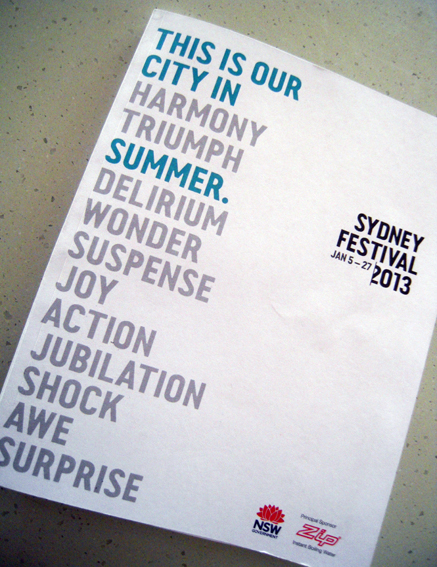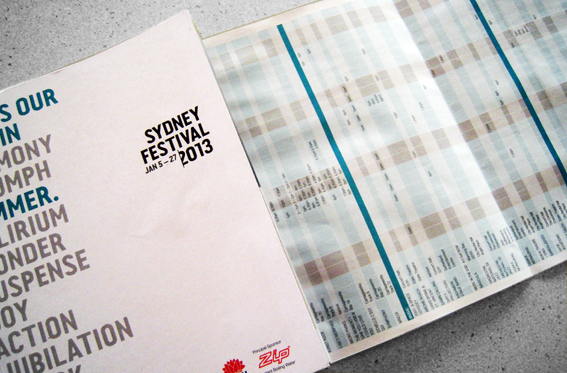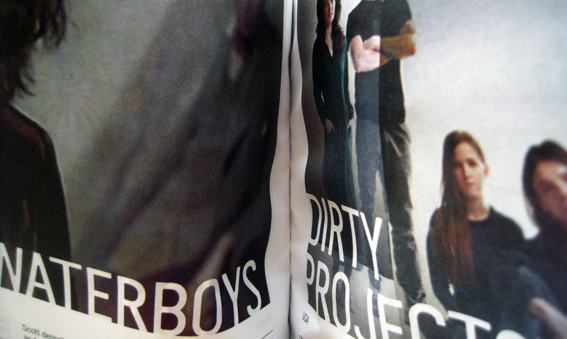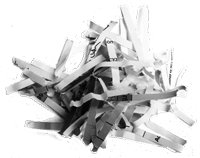I picked up this booklet in the pub, I think, 136 pages with cover, roughly A5-size, perfect bound, printed by PMP Print in Sydney on uncoated stock. It’s got lots of solid black ink and small reversed-out type, quite impressive, given the speed at which it must have been printed. It’s even got a bound-in three-page fold-out at the back for a calendar of events; point size must be about 6 or 7, rather squinty for my tired eyes but very skilfully done. There’s a lot of information here in a tiny book and it looks attractive.
The thing that struck me about it though, when I picked it up, was just how noisy it was. I think somebody must have spilt their beer on it and then it dried out, making the paper hard and crisp. Turning the pages produces a sound like ice breaking. In some parts the paper is so stiff, it’s hard to open the booklet at all without cracking the spine. At first I thought it might be a binding fault but it’s more likely to be because the pages have swollen, being drunk on ale. I hope so anyway.
It got me thinking though about the sound of print. Much is made about the sensory appeal of print over digital media – too much in my view – but it’s usually accepted that sound, along with taste, is not one of those sensory attractions. Why not? The swish of a page being turned. The rustle of the newspaper being folded. The clicking of pages being riffled. The thud of a book being closed. These are all distinctive sounds, unique to the activity of consuming printed material.
When culture is in the process of being consumed, it is mainly about the content: what’s the story, how does it make you feel, what does it all mean? When culture is looked at historically, however, it’s all about context – what was it like? The content of Shakespeare doesn’t change (well, not much) depending on whether it is performed at the RSC or the new Globe theatre but the experience is different; the latter tells us something about what it was like ‘in Shakespeare’s day’ ie what it was like to consume culture before history intervened.
The content of books doesn’t change in the shift from paper to digital production (for existing ones anyway – new ones are may be different) but the experience of consuming them is altered, and that means the culture changes as a result. A group of sounds – familiar, evocative – disappears; a part of the aural culture fades out of earshot. The experience of opening a little book and hearing the pages crack will become as unique to me as readers of yore having to slice uncut pages (something I have only had to do once).
Perhaps, in years to come, when we are living in outer space and all information is automatically fed to our brains via digital implants, there will be museums or libraries with recordings of lost paper sounds so people experience what it was like to use real paper-based products (much in the same way that visitors to Jorvik can experience the sights, sounds and smells of a Viking settlement).




